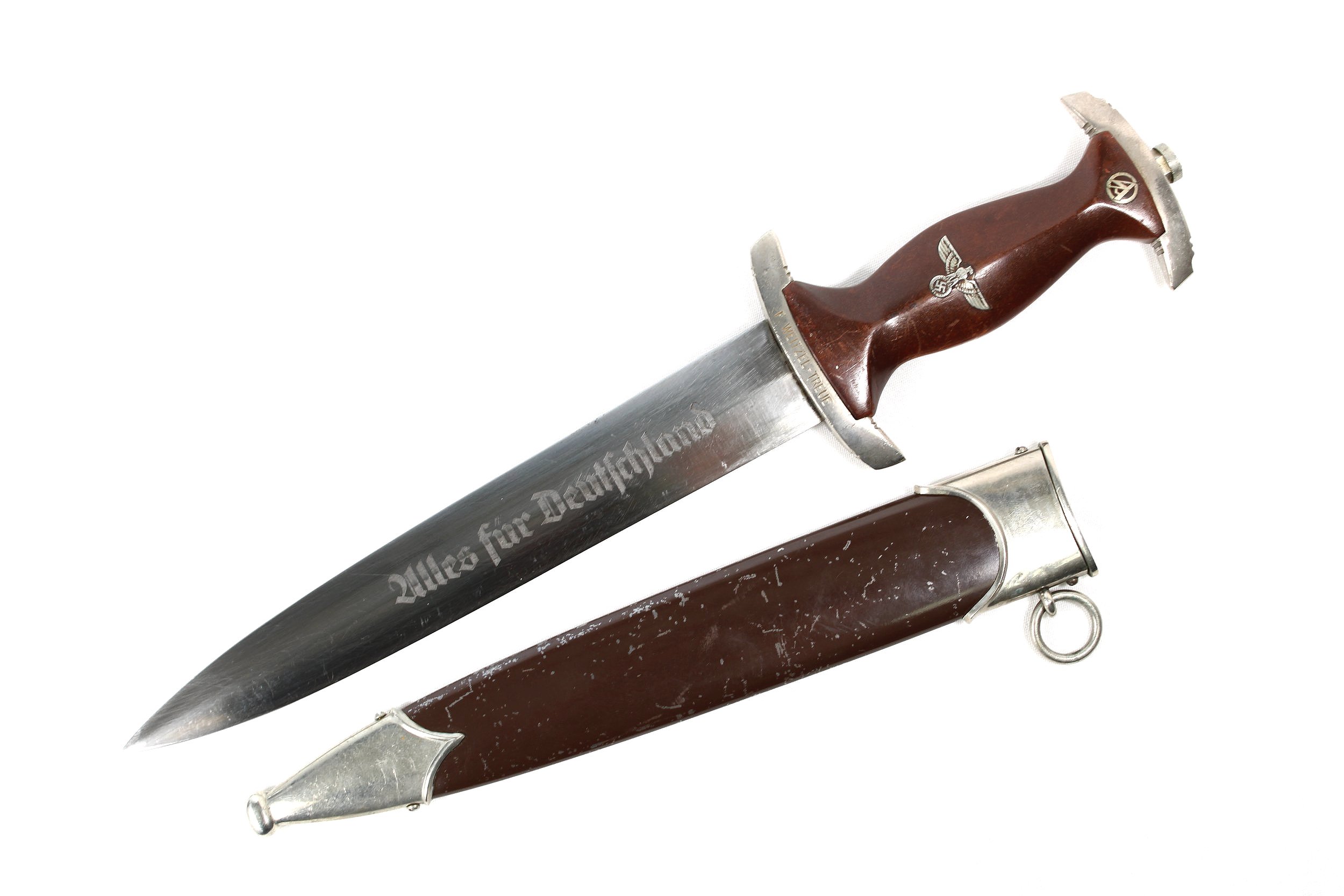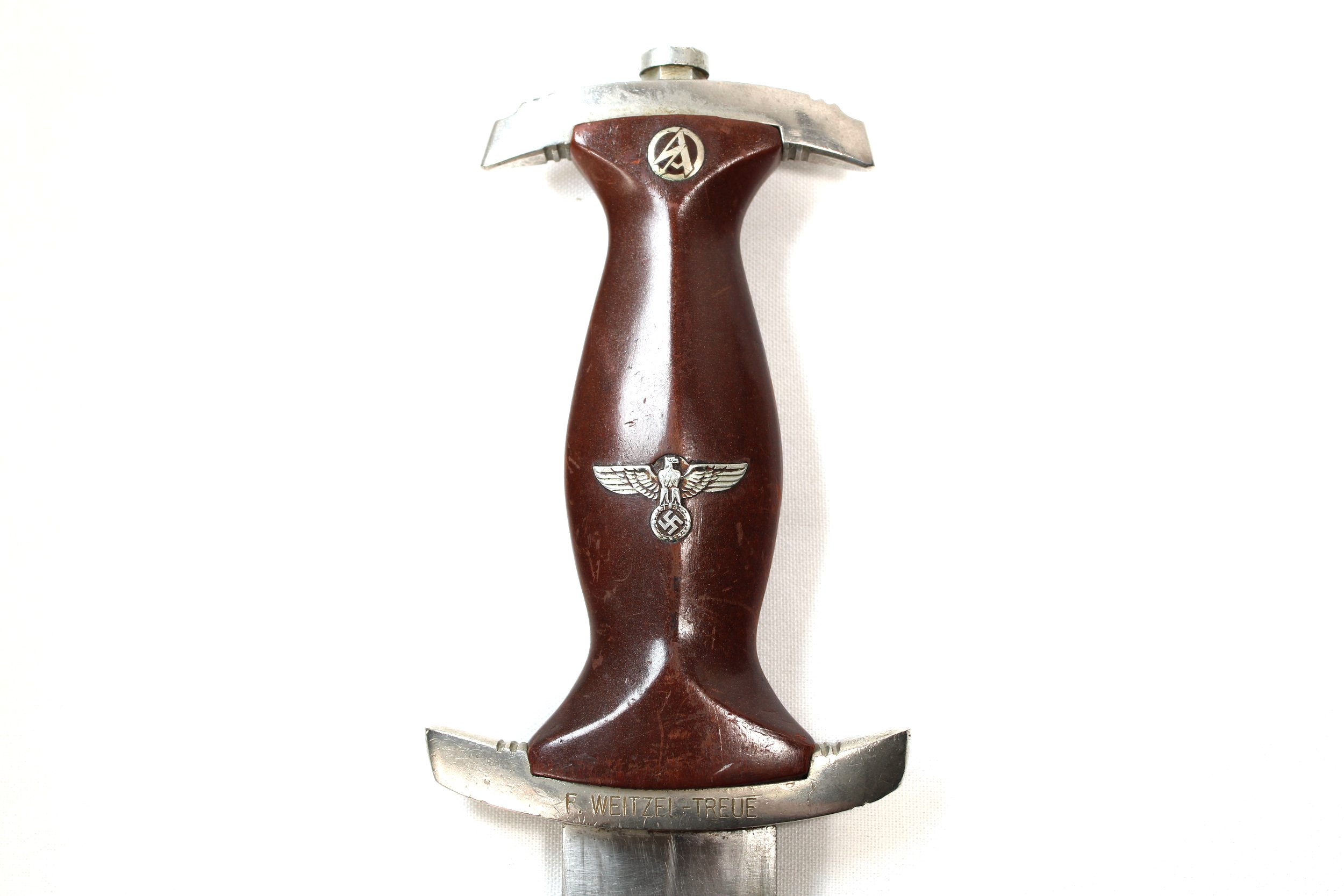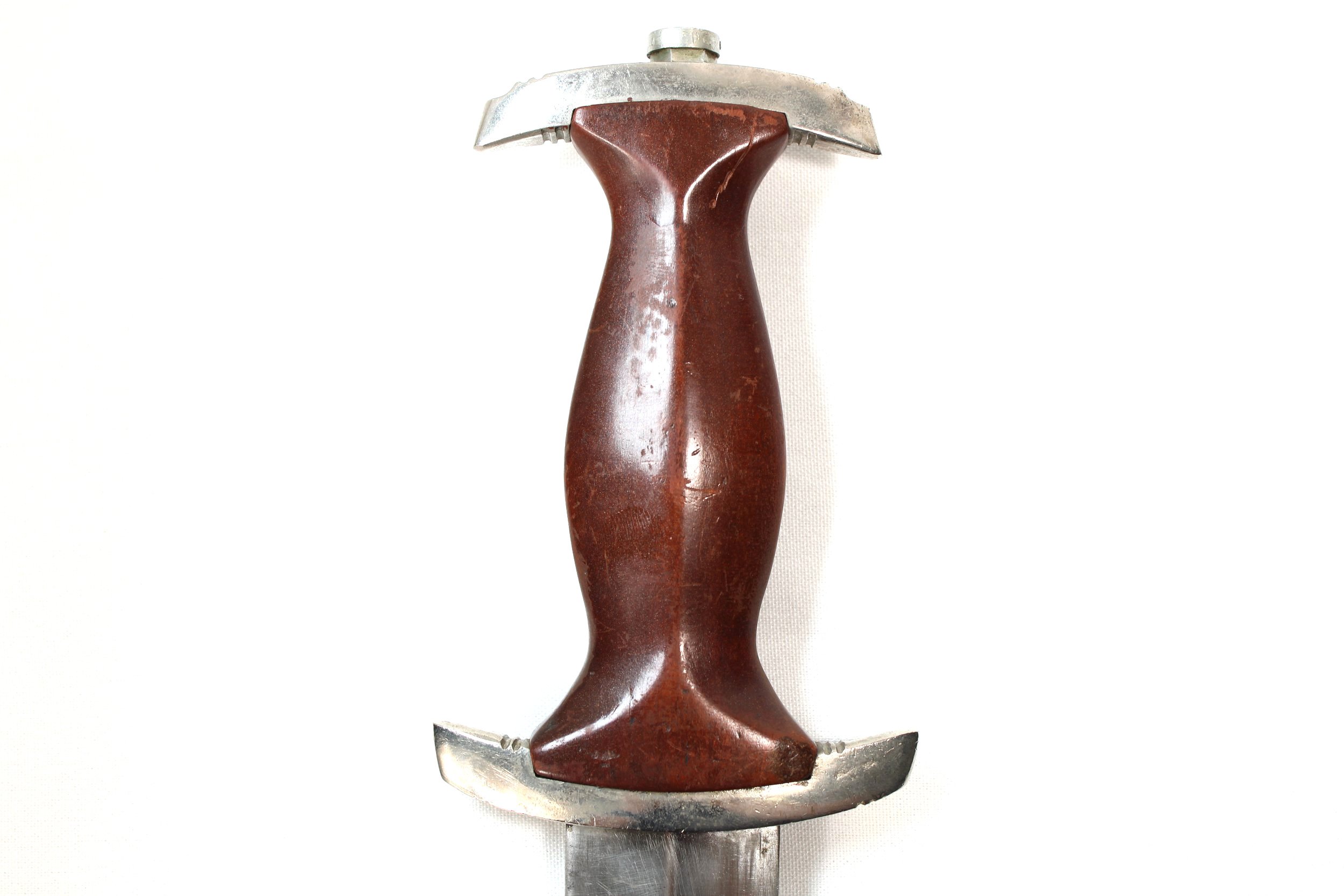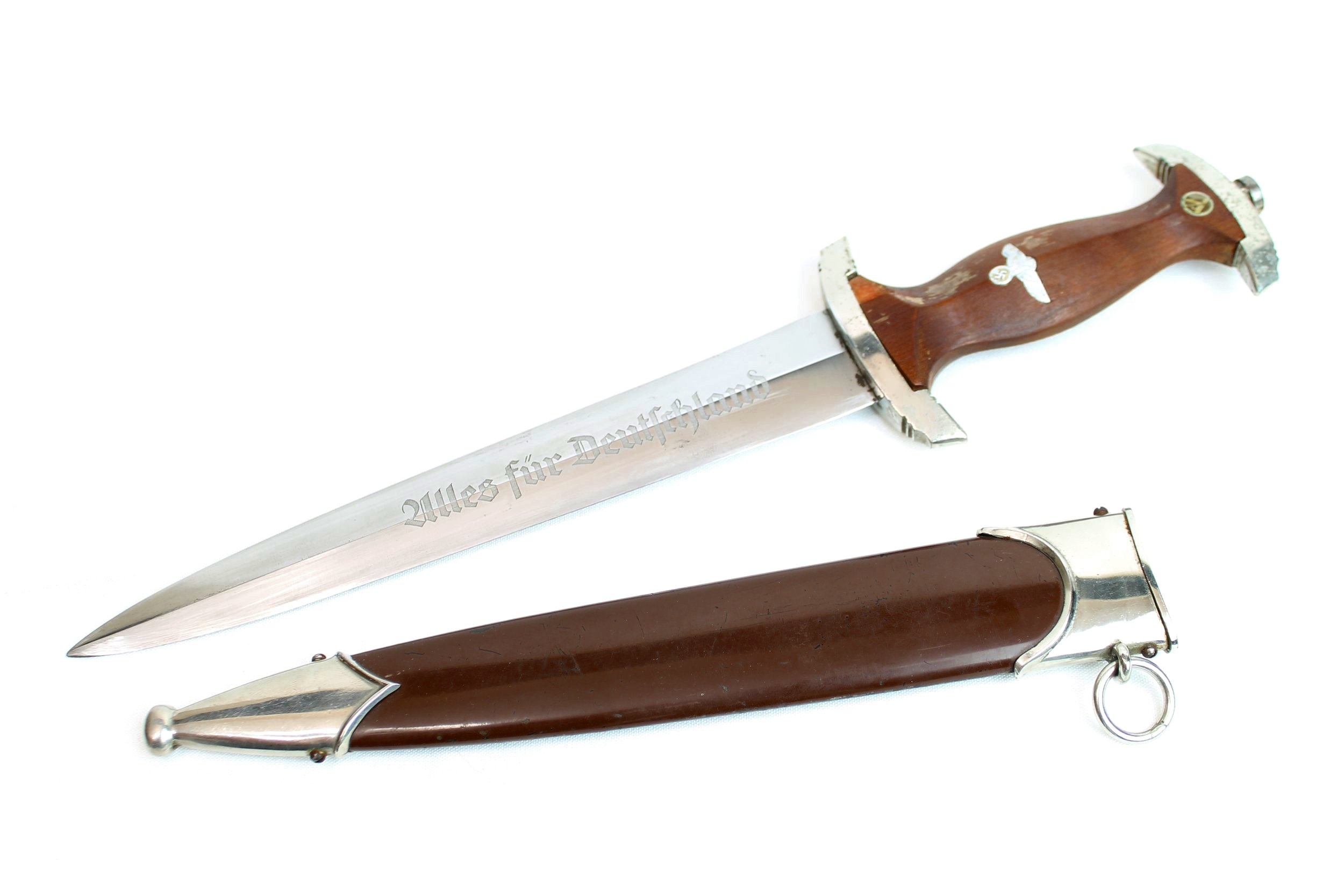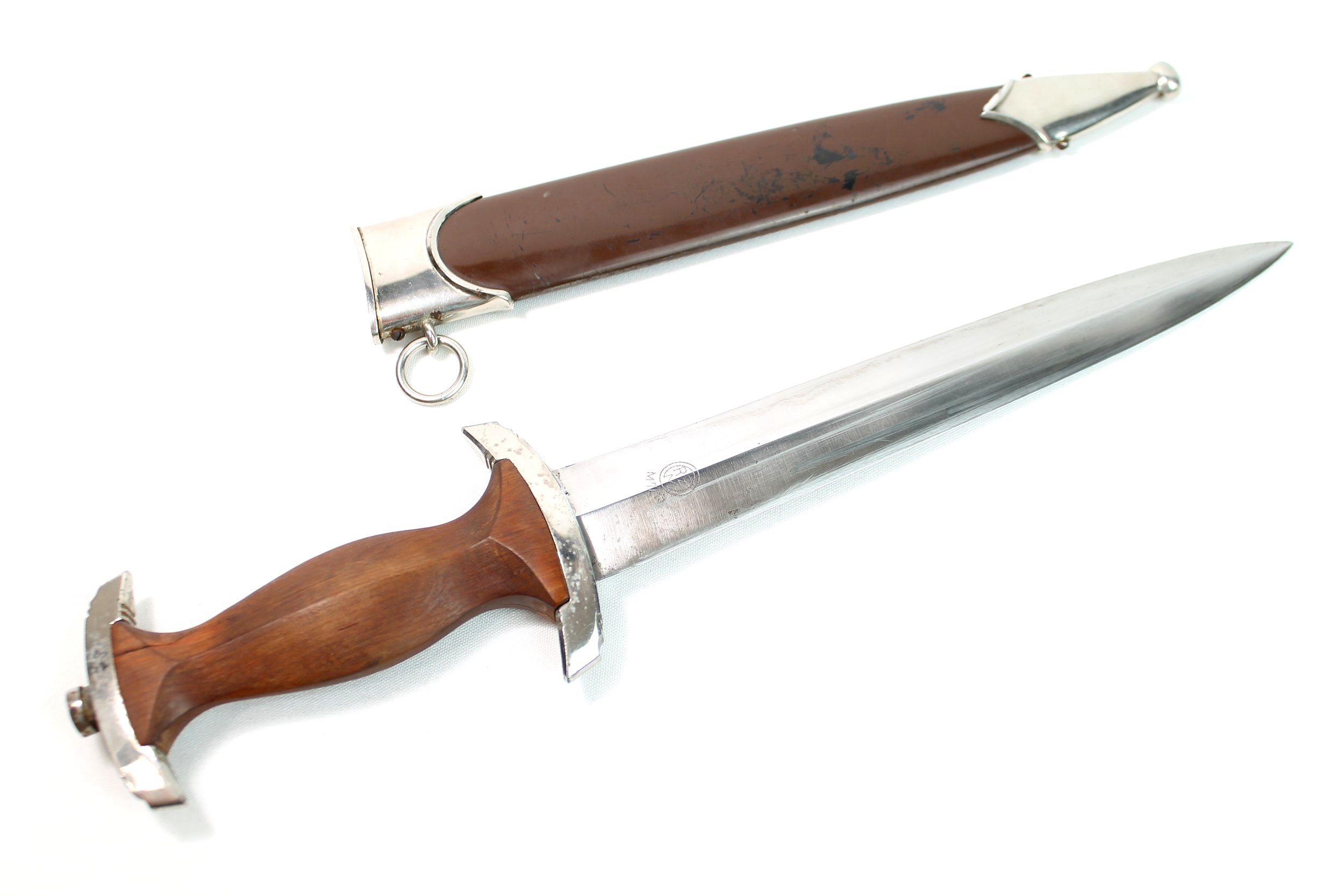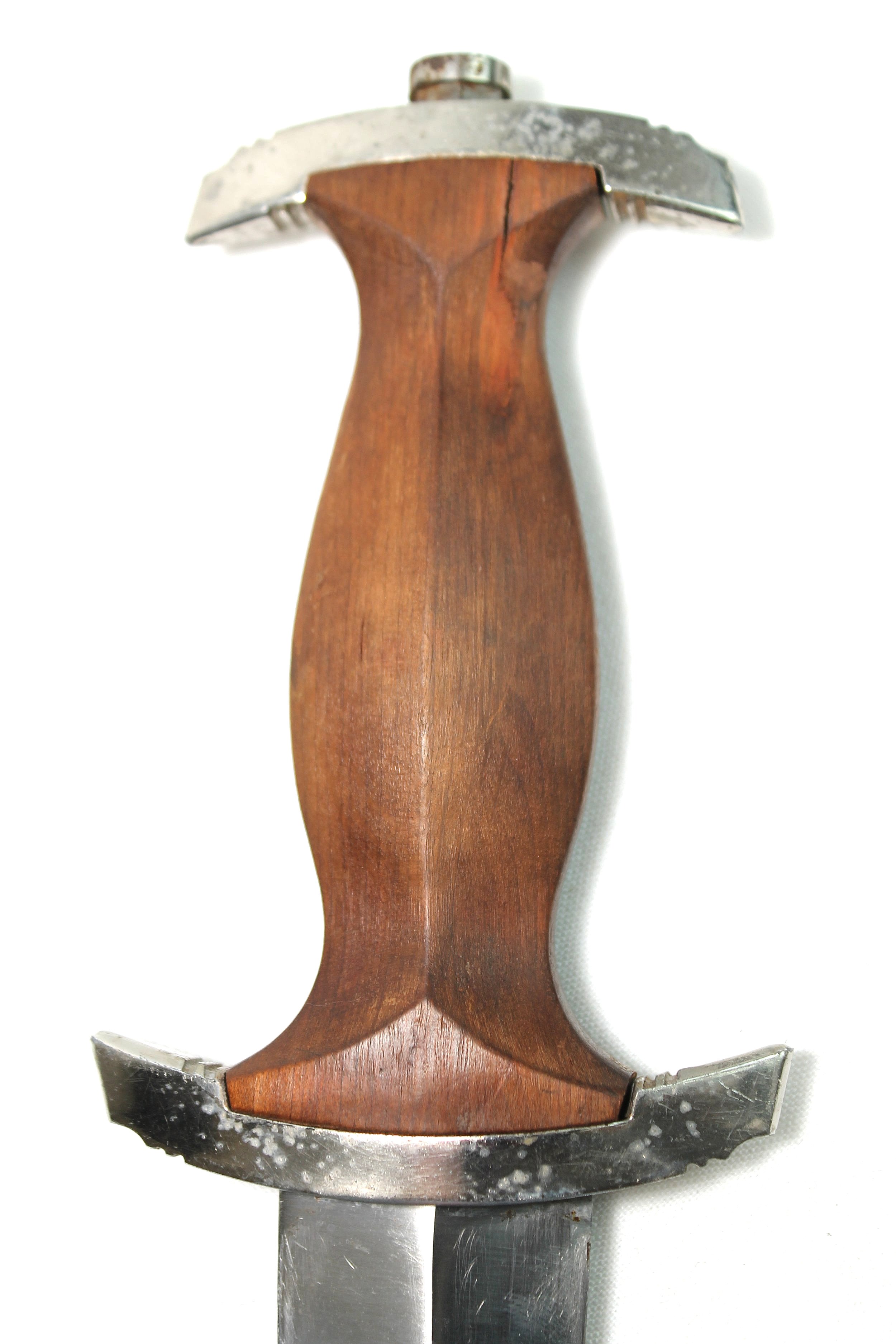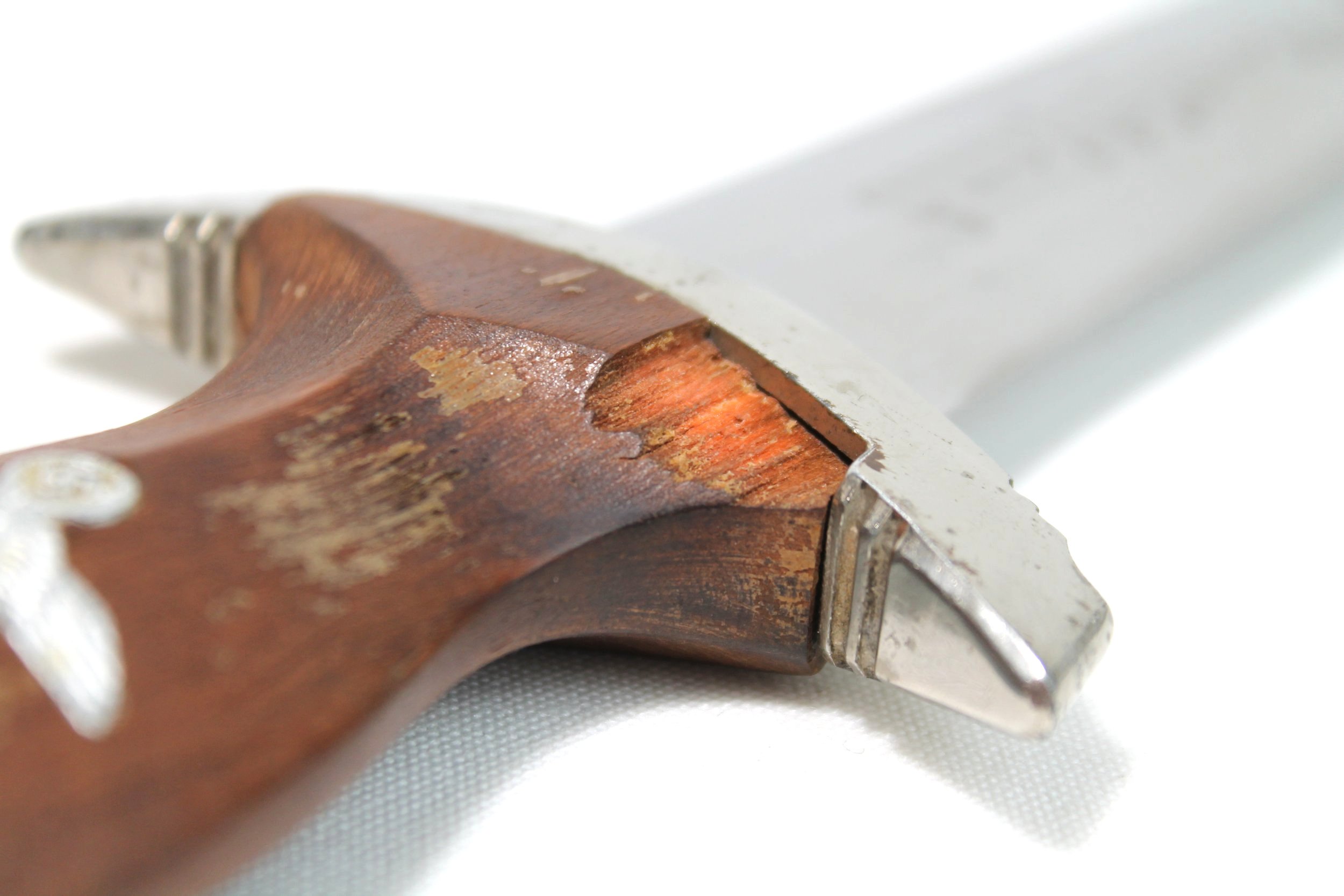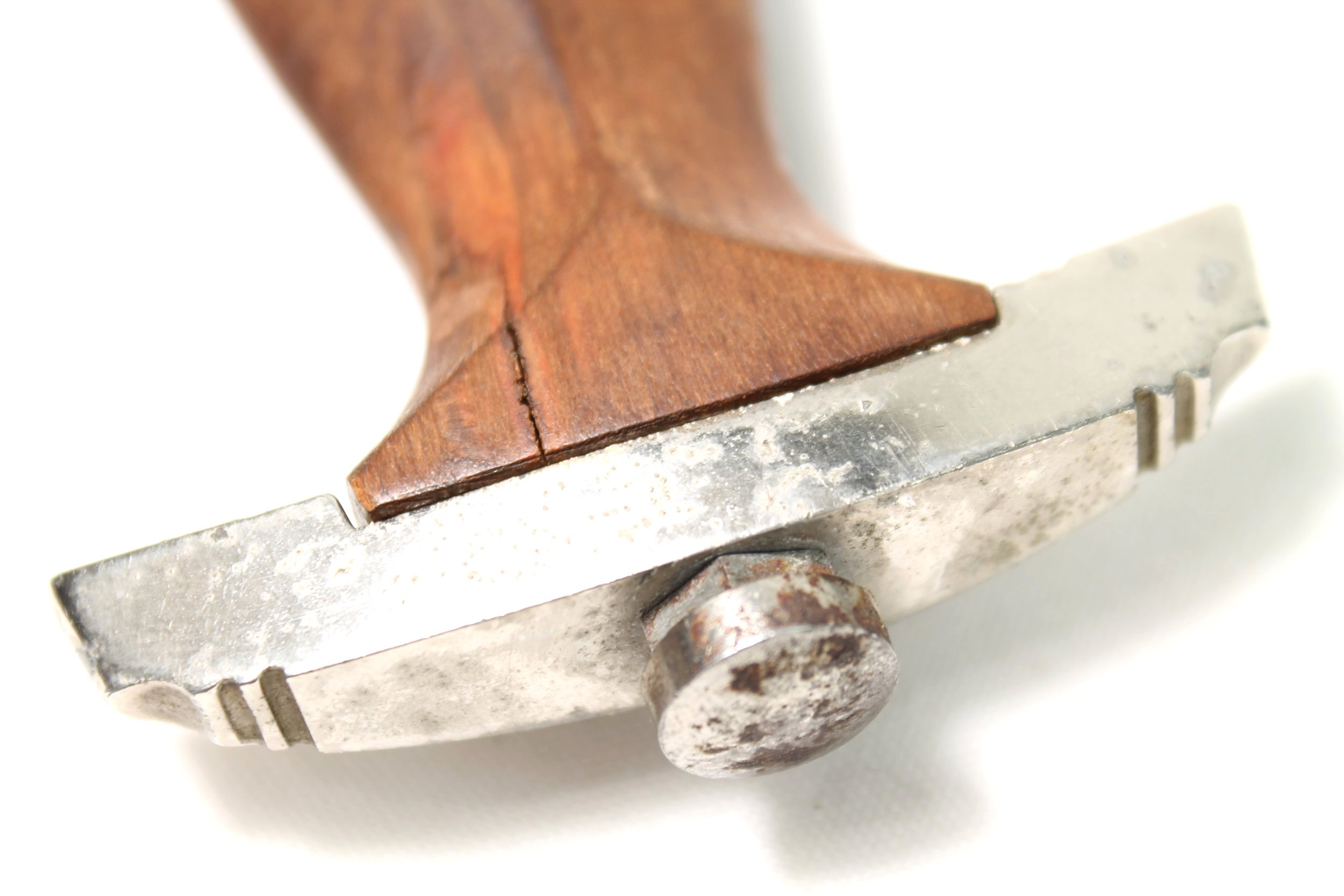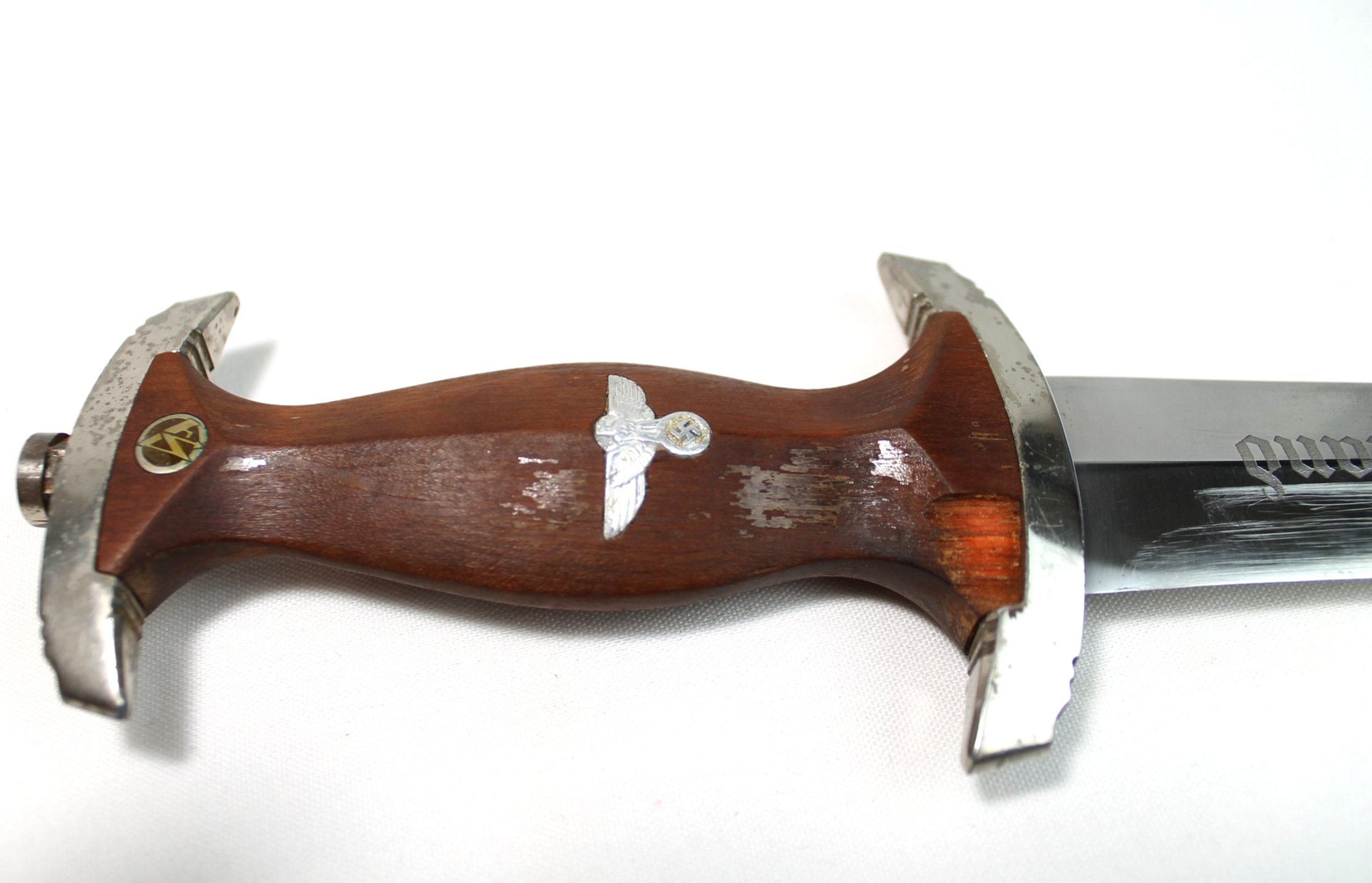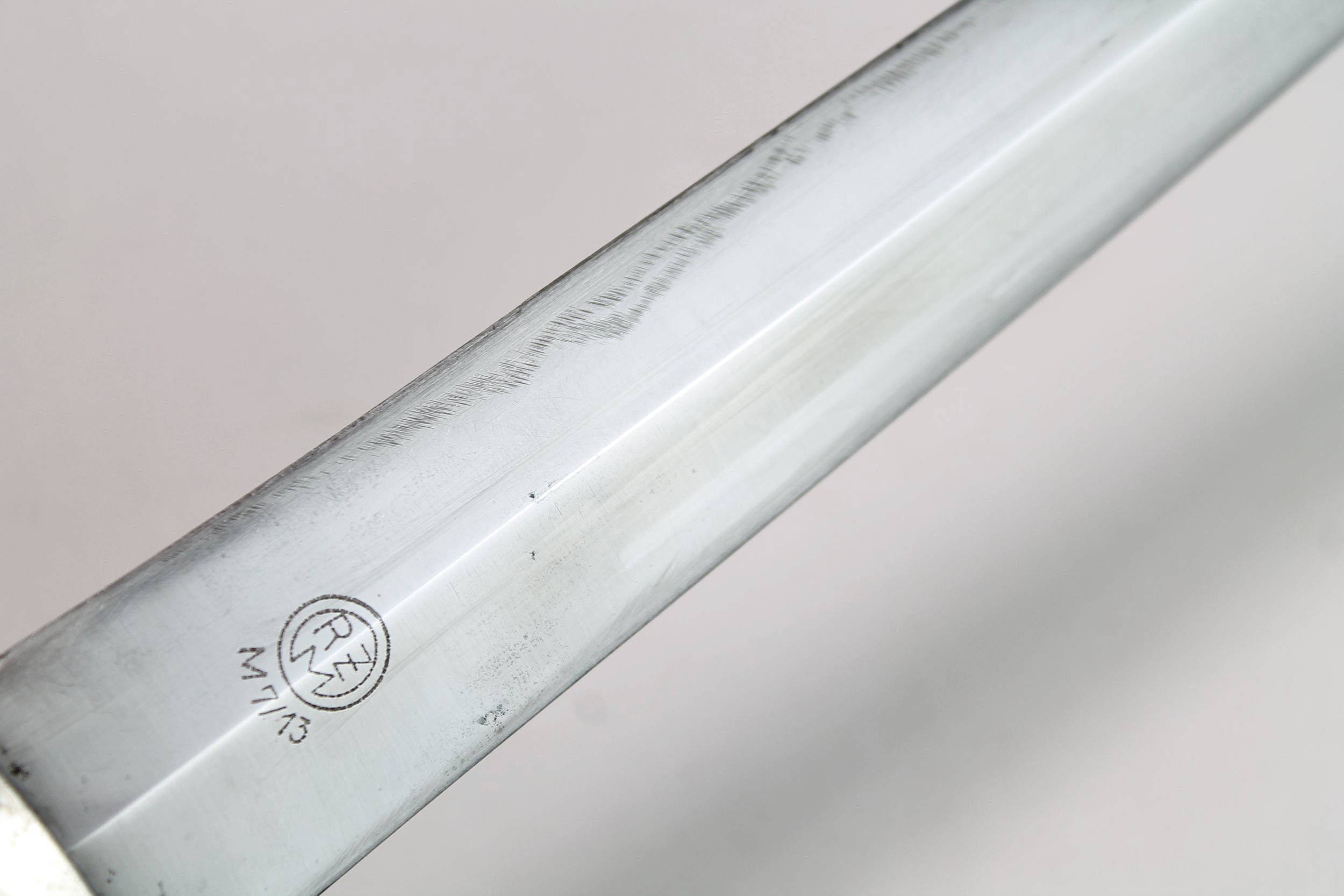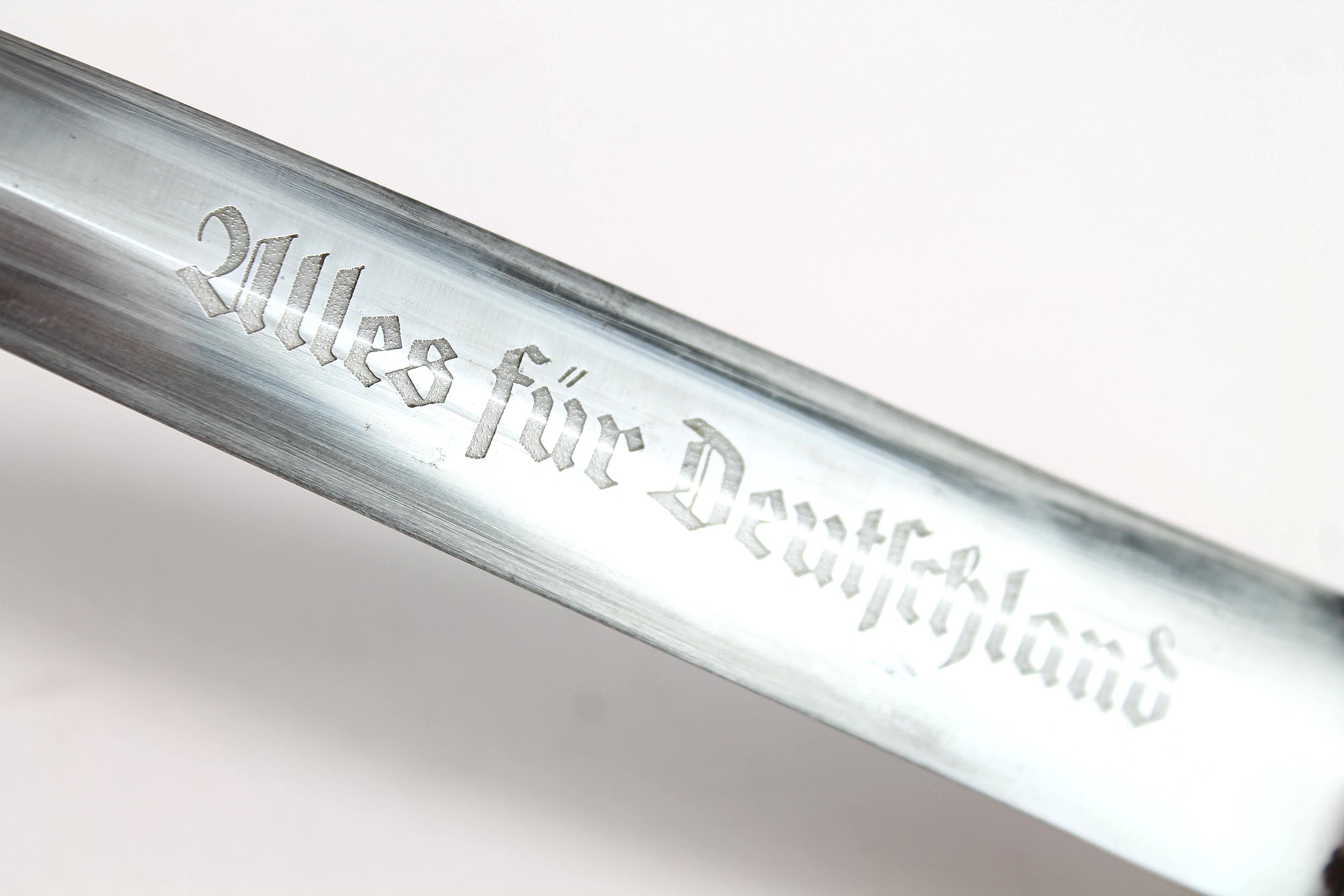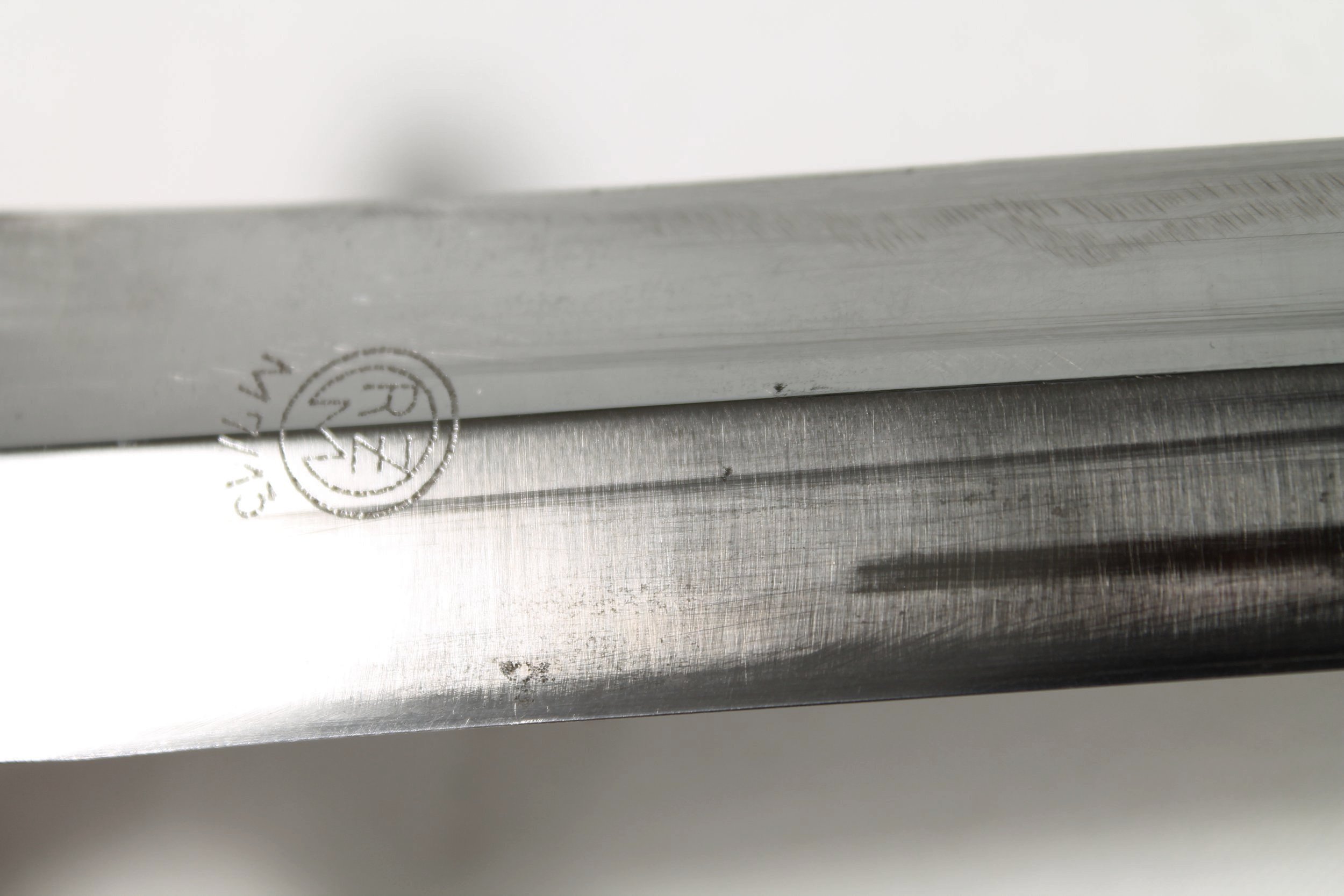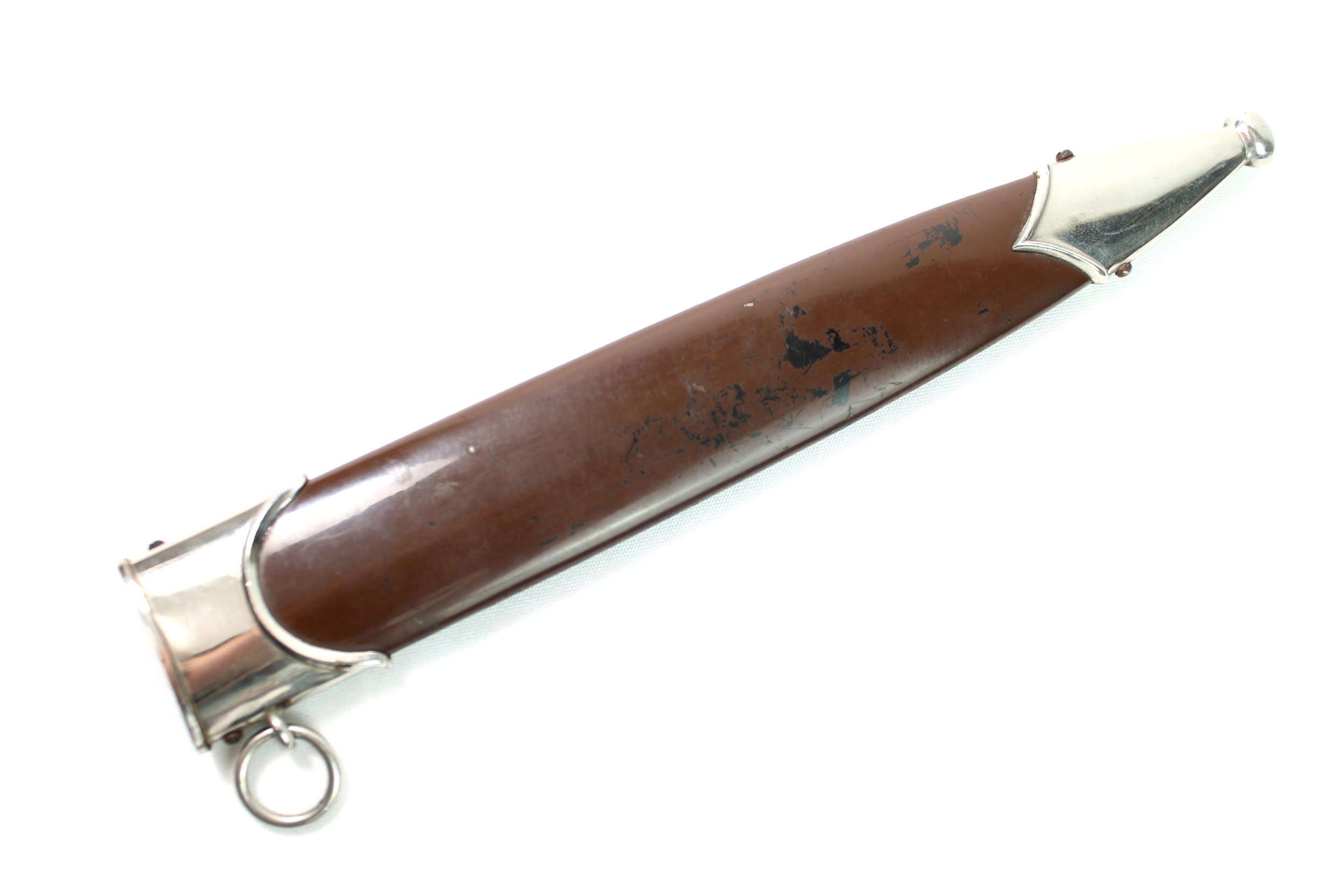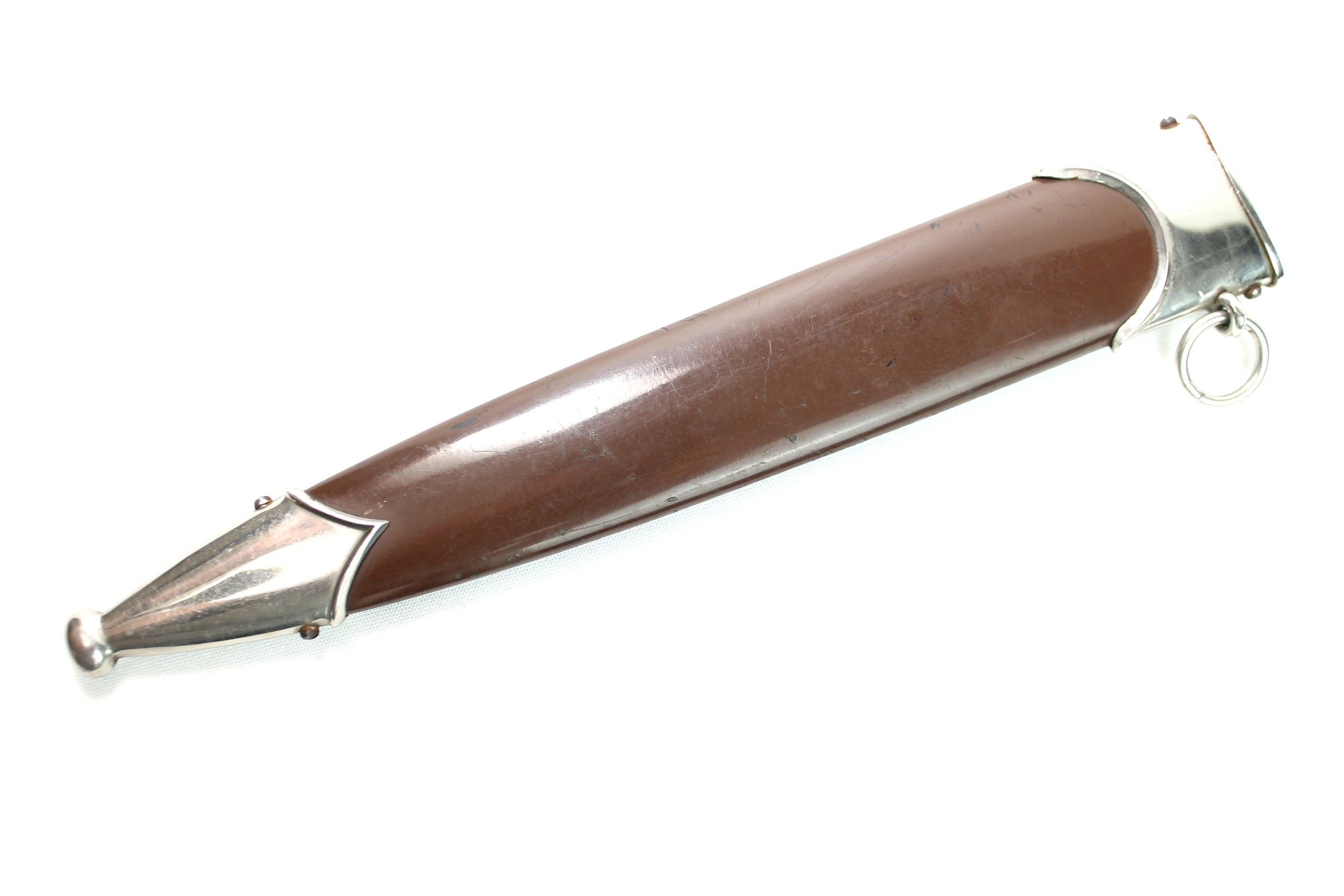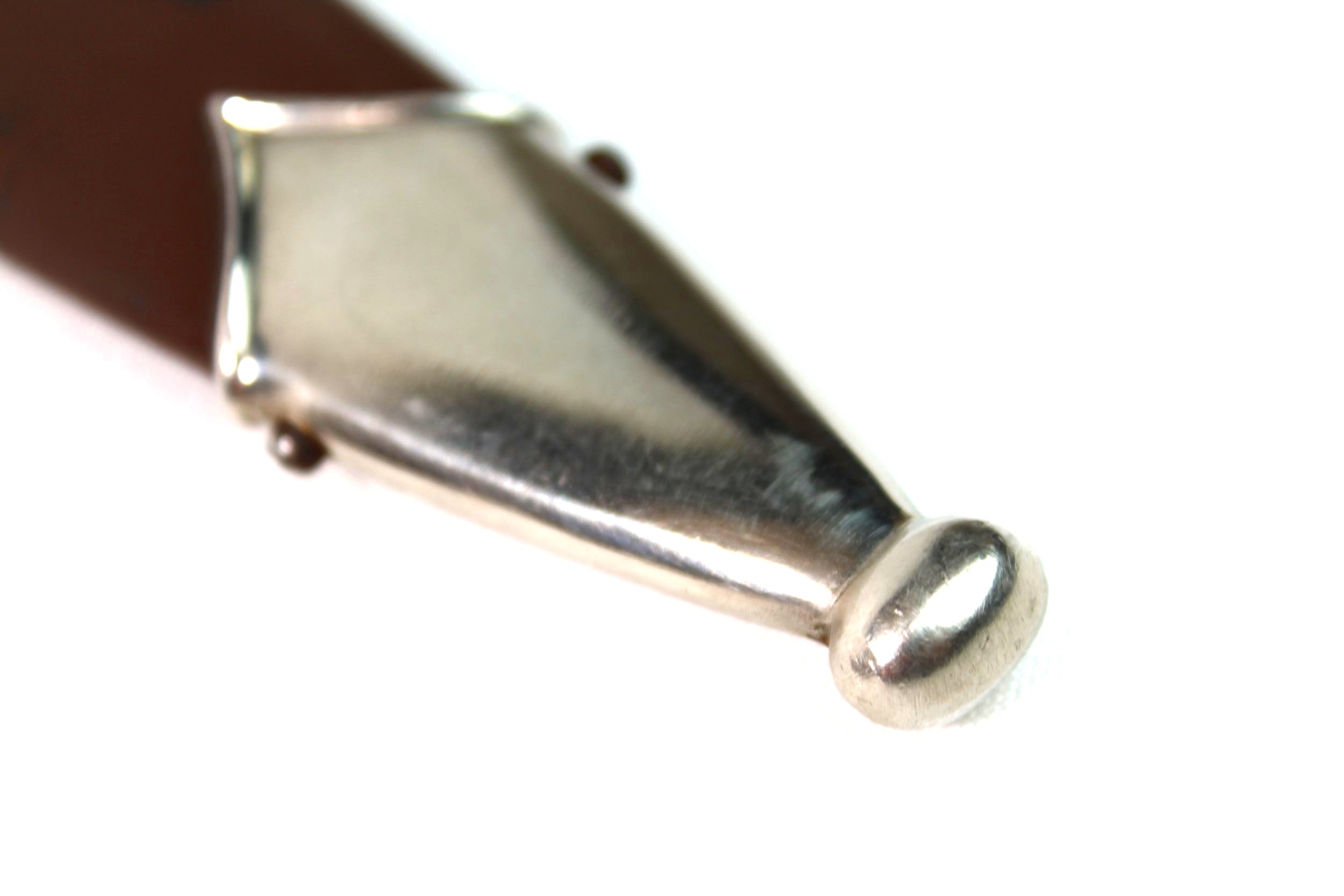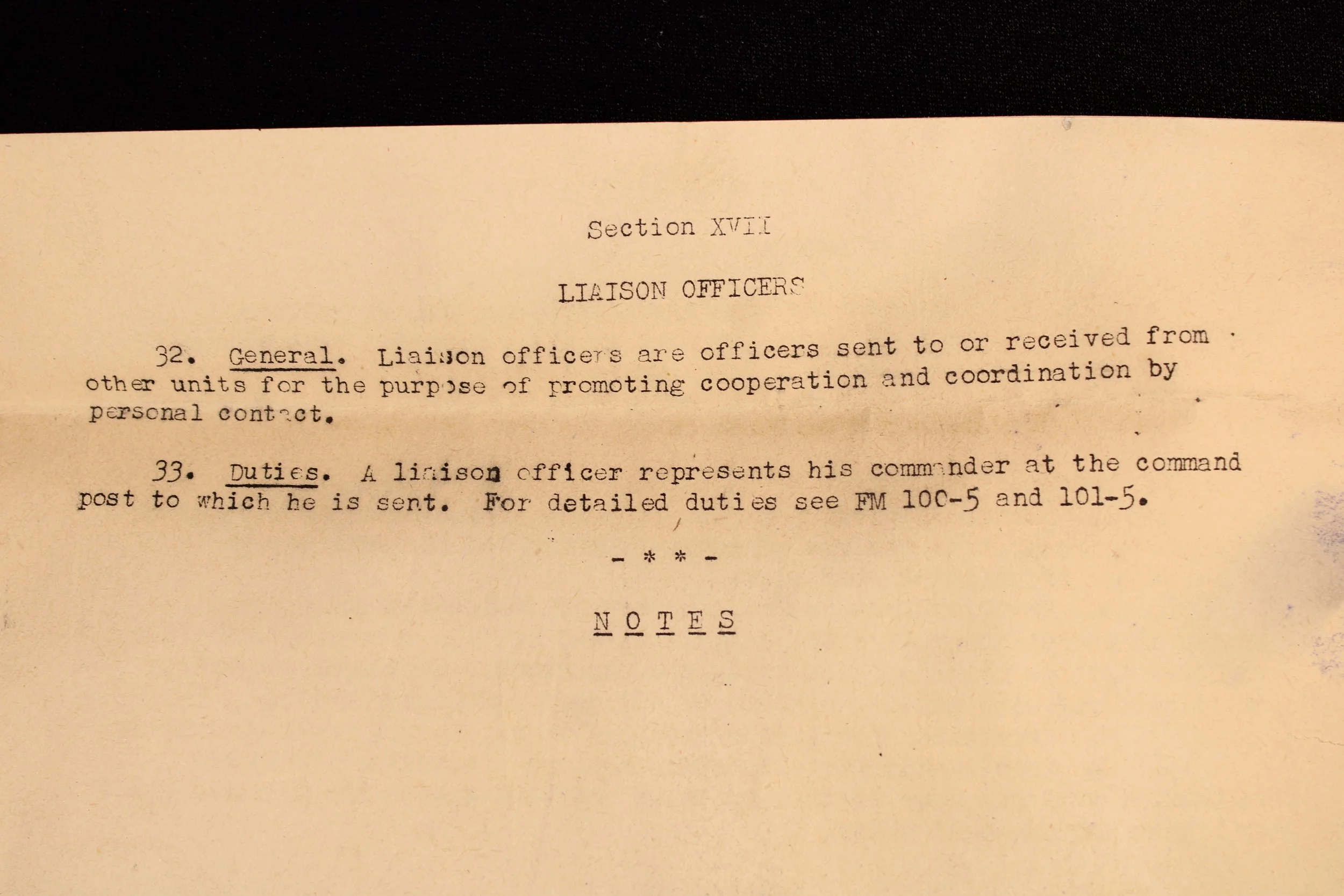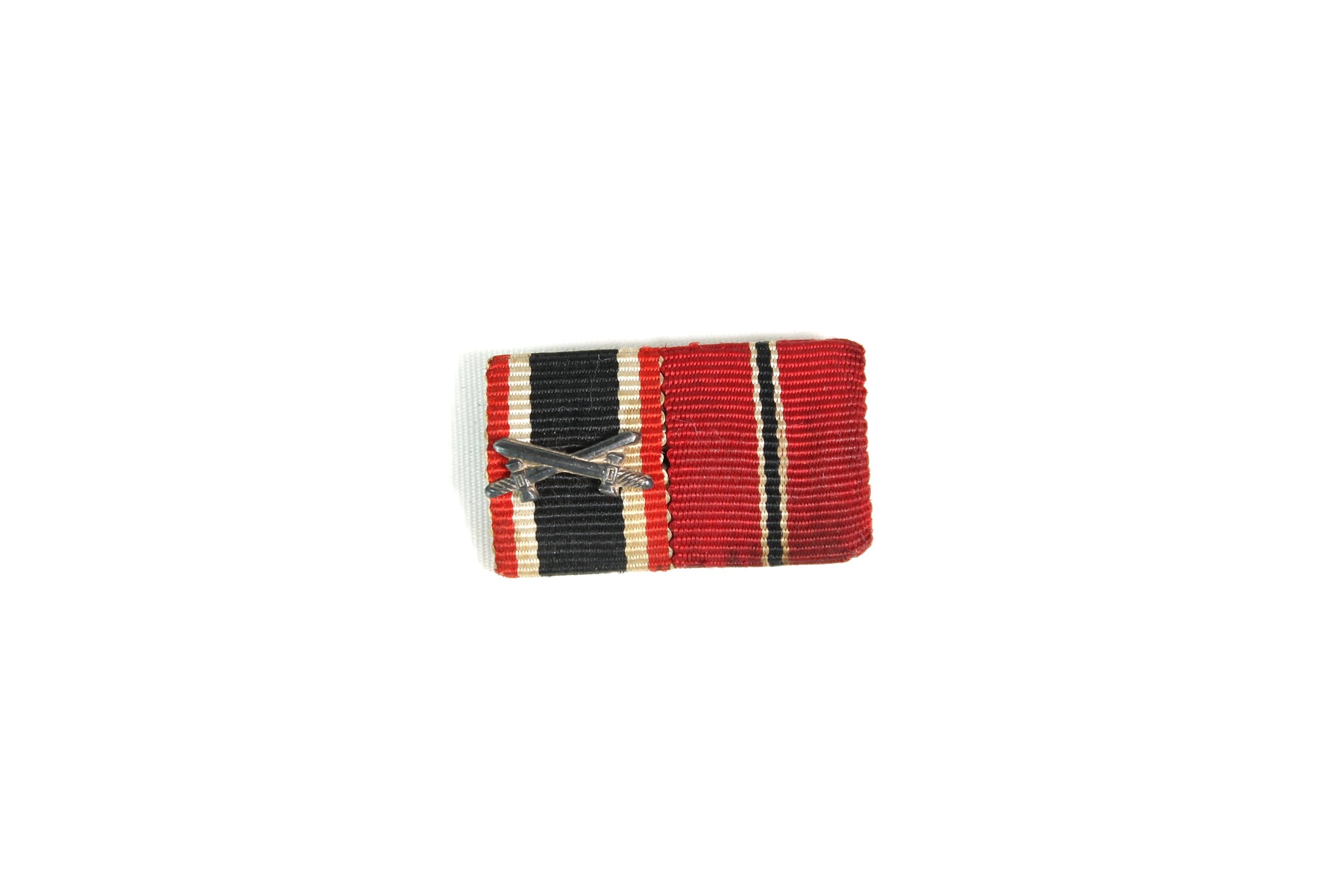Original Very Interesting "SS Obergruppenfuhrer Fritz Weitzel Loyal" Early SA Dagger By Rare Maker ( Christianwerk Solingen )
This incredible dagger must have belonged to someone very close to Weitzel, Likely someone who served with or under him.
"If an SS man was to die his dagger was to be swapped with the dagger of a close comrade or relative ,symbolizing the continuation of the SS through struggle and duty"
-SS Obergruppenfuhrer Fritz Weitzel
Fritz Weitzel, publisher of the SS Family Guide was more than just an important figure during the Reich, he was so important that Himmler forbid him to fly, an order noted for only one other man, Reinhard Heydrich.
Fritz Weitzel played a pivotal role in the structure of the SS and its ritual practices, with his SS family guide published in 1939, it would be this guide that would be utilized by the SS to teach the men of the SS their place within the state, and their heritage and significance.
Friedrich "Fritz" Philip Weitzel (27 April 1904 – 19 June 1940) was a German SS-Obergruppenführer and Nazi Party politician. He was killed in an air raid early in the Second World War.
In 1924 he became a member of the SA and in September 1925 he joined the Nazi Party (membership number 18,833). As an early Party member, he would later be awarded the Golden Party Badge. In 1926, Weitzel became one of the earliest members of the SS (SS number 408). He helped form and lead the SS unit in Frankfurt and in 1927 he was in charge of the SS in Gau Hesse-Nassau Süd. Over the next two years, he led the SS units in Gau Rheinland-Süd, Gau Rheinpfalz and Gau Hesse-Nassau Nord. On 1 May 1928, he became the commander of SS-Standarte 2, based in Frankfurt. On 18 November 1929, he was selected to head what would become SS-Oberabschnitt (Main District) "West", a senior command comprising all of Wehrkreis (Military District) VI, which he would hold until 20 April 1940.[1] Throughout these years, he was arrested and fined multiple times for street violence, breach of the peace, resisting arrest and carrying illegal firearms.[2]
In the 1930 German federal election, Weitzel was elected to the Reichstag as a Nazi Party deputy from electoral constituency 19 (Hessen-Nassau). He would be reelected from there several times until the election of 1936 when he switched to constituency 22 (Düsseldorf-East), the seat he held until his death. On 12 May 1932, Weitzel was involved in a physical attack on the journalist Helmuth Klotz in the Reichstag restaurant.[3] Weitzel, together with three other Nazi deputies, was barred from parliament for 30 days. However, the session had to be adjourned when they refused to leave the Reichstag chamber. On 14 May Weitzel, along with deputies Edmund Heines and Wilhelm Stegmann, was sentenced by a Berlin court to three months in prison for assault.
After the Nazi seizure of power, Weitzel was appointed Police President of Düsseldorf on 1 May 1933 by Prussian Minister of the Interior Hermann Göring. Without any formal police training, but as a convinced National Socialist, he was selected to replace the democratic police chief Hans Langels [de]. In July 1933 Göring also appointed him to the Prussian State Council.[4] Under Weitzel, there were extremely brutal attacks by the police, SS and SA against their political opponents in the city. Numerous Communists and Social Democrats were arrested and beaten, and Weitzel was reported to have personally taken part in interrogations and torture.[5][6] Weitzel also took a clear stance against Catholicism. As chief of police, he banned processions and public appearances by church groups in the city and published a pamphlet against Catholic priests and religious orders.[7]
On 9 September 1934 Weitzel was promoted to SS-Obergruppenführer. On 30 March 1935, he was made a Provincial Councilor for the Rhine Province. He was also made head of the SS and police court in Düsseldorf.[2] On 11 June 1938 he was appointed by Reichsführer-SS Heinrich Himmler as Higher SS and Police Leader (HSSPF) "West", based in Düsseldorf. As such, he commanded all SS, SD, SiPo and uniformed police in Wehrkreis VI. During the Second World War, after the occupation of Norway by German troops, Weitzel was transferred to become HSSPF "Nord" on 20 April 1940, with headquarters in Oslo.[8] Only two months later, Weitzel was fatally injured by shrapnel in an RAF air raid on Düsseldorf while he was home on leave.[2]
At the time of his death, Weitzel was the fourth most senior officer in the SS. He was given a lavish state funeral in Düsseldorf, in which the Chief of the Ordnungspolizei, SS-Obergruppenfuhrer Kurt Daluege, the Rhenish Oberpresident and Reichskommissar for Norway Josef Terboven and Düsseldorf Gauleiter Friedrich Karl Florian all took part. Just two days after Weitzel's death, the SS-Standarte 20 (Düsseldorf) received the honorary name SS-Standarte Fritz Weitzel.
This incredible dagger must have belonged to someone very close to Weitzel, Likely someone who served with or under him.
"If an SS man was to die his dagger was to be swapped with the dagger of a close comrade or relative ,symbolizing the continuation of the SS through struggle and duty"
-SS Obergruppenfuhrer Fritz Weitzel
Fritz Weitzel, publisher of the SS Family Guide was more than just an important figure during the Reich, he was so important that Himmler forbid him to fly, an order noted for only one other man, Reinhard Heydrich.
Fritz Weitzel played a pivotal role in the structure of the SS and its ritual practices, with his SS family guide published in 1939, it would be this guide that would be utilized by the SS to teach the men of the SS their place within the state, and their heritage and significance.
Friedrich "Fritz" Philip Weitzel (27 April 1904 – 19 June 1940) was a German SS-Obergruppenführer and Nazi Party politician. He was killed in an air raid early in the Second World War.
In 1924 he became a member of the SA and in September 1925 he joined the Nazi Party (membership number 18,833). As an early Party member, he would later be awarded the Golden Party Badge. In 1926, Weitzel became one of the earliest members of the SS (SS number 408). He helped form and lead the SS unit in Frankfurt and in 1927 he was in charge of the SS in Gau Hesse-Nassau Süd. Over the next two years, he led the SS units in Gau Rheinland-Süd, Gau Rheinpfalz and Gau Hesse-Nassau Nord. On 1 May 1928, he became the commander of SS-Standarte 2, based in Frankfurt. On 18 November 1929, he was selected to head what would become SS-Oberabschnitt (Main District) "West", a senior command comprising all of Wehrkreis (Military District) VI, which he would hold until 20 April 1940.[1] Throughout these years, he was arrested and fined multiple times for street violence, breach of the peace, resisting arrest and carrying illegal firearms.[2]
In the 1930 German federal election, Weitzel was elected to the Reichstag as a Nazi Party deputy from electoral constituency 19 (Hessen-Nassau). He would be reelected from there several times until the election of 1936 when he switched to constituency 22 (Düsseldorf-East), the seat he held until his death. On 12 May 1932, Weitzel was involved in a physical attack on the journalist Helmuth Klotz in the Reichstag restaurant.[3] Weitzel, together with three other Nazi deputies, was barred from parliament for 30 days. However, the session had to be adjourned when they refused to leave the Reichstag chamber. On 14 May Weitzel, along with deputies Edmund Heines and Wilhelm Stegmann, was sentenced by a Berlin court to three months in prison for assault.
After the Nazi seizure of power, Weitzel was appointed Police President of Düsseldorf on 1 May 1933 by Prussian Minister of the Interior Hermann Göring. Without any formal police training, but as a convinced National Socialist, he was selected to replace the democratic police chief Hans Langels [de]. In July 1933 Göring also appointed him to the Prussian State Council.[4] Under Weitzel, there were extremely brutal attacks by the police, SS and SA against their political opponents in the city. Numerous Communists and Social Democrats were arrested and beaten, and Weitzel was reported to have personally taken part in interrogations and torture.[5][6] Weitzel also took a clear stance against Catholicism. As chief of police, he banned processions and public appearances by church groups in the city and published a pamphlet against Catholic priests and religious orders.[7]
On 9 September 1934 Weitzel was promoted to SS-Obergruppenführer. On 30 March 1935, he was made a Provincial Councilor for the Rhine Province. He was also made head of the SS and police court in Düsseldorf.[2] On 11 June 1938 he was appointed by Reichsführer-SS Heinrich Himmler as Higher SS and Police Leader (HSSPF) "West", based in Düsseldorf. As such, he commanded all SS, SD, SiPo and uniformed police in Wehrkreis VI. During the Second World War, after the occupation of Norway by German troops, Weitzel was transferred to become HSSPF "Nord" on 20 April 1940, with headquarters in Oslo.[8] Only two months later, Weitzel was fatally injured by shrapnel in an RAF air raid on Düsseldorf while he was home on leave.[2]
At the time of his death, Weitzel was the fourth most senior officer in the SS. He was given a lavish state funeral in Düsseldorf, in which the Chief of the Ordnungspolizei, SS-Obergruppenfuhrer Kurt Daluege, the Rhenish Oberpresident and Reichskommissar for Norway Josef Terboven and Düsseldorf Gauleiter Friedrich Karl Florian all took part. Just two days after Weitzel's death, the SS-Standarte 20 (Düsseldorf) received the honorary name SS-Standarte Fritz Weitzel.
This incredible dagger must have belonged to someone very close to Weitzel, Likely someone who served with or under him.
"If an SS man was to die his dagger was to be swapped with the dagger of a close comrade or relative ,symbolizing the continuation of the SS through struggle and duty"
-SS Obergruppenfuhrer Fritz Weitzel
Fritz Weitzel, publisher of the SS Family Guide was more than just an important figure during the Reich, he was so important that Himmler forbid him to fly, an order noted for only one other man, Reinhard Heydrich.
Fritz Weitzel played a pivotal role in the structure of the SS and its ritual practices, with his SS family guide published in 1939, it would be this guide that would be utilized by the SS to teach the men of the SS their place within the state, and their heritage and significance.
Friedrich "Fritz" Philip Weitzel (27 April 1904 – 19 June 1940) was a German SS-Obergruppenführer and Nazi Party politician. He was killed in an air raid early in the Second World War.
In 1924 he became a member of the SA and in September 1925 he joined the Nazi Party (membership number 18,833). As an early Party member, he would later be awarded the Golden Party Badge. In 1926, Weitzel became one of the earliest members of the SS (SS number 408). He helped form and lead the SS unit in Frankfurt and in 1927 he was in charge of the SS in Gau Hesse-Nassau Süd. Over the next two years, he led the SS units in Gau Rheinland-Süd, Gau Rheinpfalz and Gau Hesse-Nassau Nord. On 1 May 1928, he became the commander of SS-Standarte 2, based in Frankfurt. On 18 November 1929, he was selected to head what would become SS-Oberabschnitt (Main District) "West", a senior command comprising all of Wehrkreis (Military District) VI, which he would hold until 20 April 1940.[1] Throughout these years, he was arrested and fined multiple times for street violence, breach of the peace, resisting arrest and carrying illegal firearms.[2]
In the 1930 German federal election, Weitzel was elected to the Reichstag as a Nazi Party deputy from electoral constituency 19 (Hessen-Nassau). He would be reelected from there several times until the election of 1936 when he switched to constituency 22 (Düsseldorf-East), the seat he held until his death. On 12 May 1932, Weitzel was involved in a physical attack on the journalist Helmuth Klotz in the Reichstag restaurant.[3] Weitzel, together with three other Nazi deputies, was barred from parliament for 30 days. However, the session had to be adjourned when they refused to leave the Reichstag chamber. On 14 May Weitzel, along with deputies Edmund Heines and Wilhelm Stegmann, was sentenced by a Berlin court to three months in prison for assault.
After the Nazi seizure of power, Weitzel was appointed Police President of Düsseldorf on 1 May 1933 by Prussian Minister of the Interior Hermann Göring. Without any formal police training, but as a convinced National Socialist, he was selected to replace the democratic police chief Hans Langels [de]. In July 1933 Göring also appointed him to the Prussian State Council.[4] Under Weitzel, there were extremely brutal attacks by the police, SS and SA against their political opponents in the city. Numerous Communists and Social Democrats were arrested and beaten, and Weitzel was reported to have personally taken part in interrogations and torture.[5][6] Weitzel also took a clear stance against Catholicism. As chief of police, he banned processions and public appearances by church groups in the city and published a pamphlet against Catholic priests and religious orders.[7]
On 9 September 1934 Weitzel was promoted to SS-Obergruppenführer. On 30 March 1935, he was made a Provincial Councilor for the Rhine Province. He was also made head of the SS and police court in Düsseldorf.[2] On 11 June 1938 he was appointed by Reichsführer-SS Heinrich Himmler as Higher SS and Police Leader (HSSPF) "West", based in Düsseldorf. As such, he commanded all SS, SD, SiPo and uniformed police in Wehrkreis VI. During the Second World War, after the occupation of Norway by German troops, Weitzel was transferred to become HSSPF "Nord" on 20 April 1940, with headquarters in Oslo.[8] Only two months later, Weitzel was fatally injured by shrapnel in an RAF air raid on Düsseldorf while he was home on leave.[2]
At the time of his death, Weitzel was the fourth most senior officer in the SS. He was given a lavish state funeral in Düsseldorf, in which the Chief of the Ordnungspolizei, SS-Obergruppenfuhrer Kurt Daluege, the Rhenish Oberpresident and Reichskommissar for Norway Josef Terboven and Düsseldorf Gauleiter Friedrich Karl Florian all took part. Just two days after Weitzel's death, the SS-Standarte 20 (Düsseldorf) received the honorary name SS-Standarte Fritz Weitzel.


